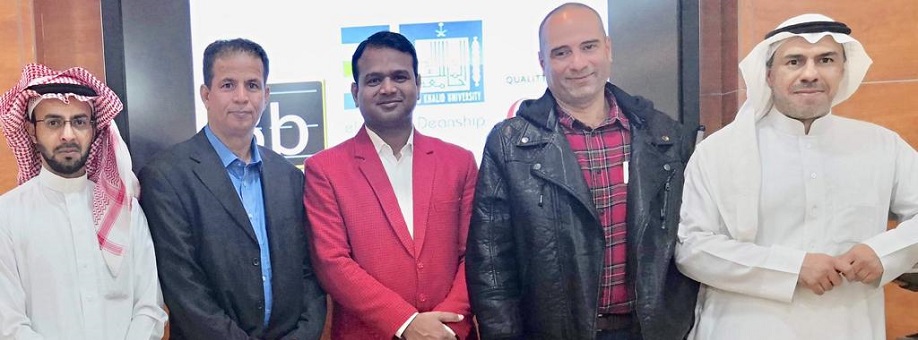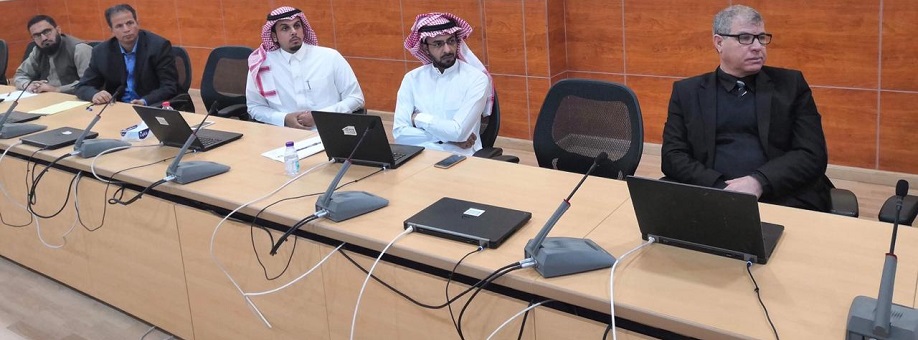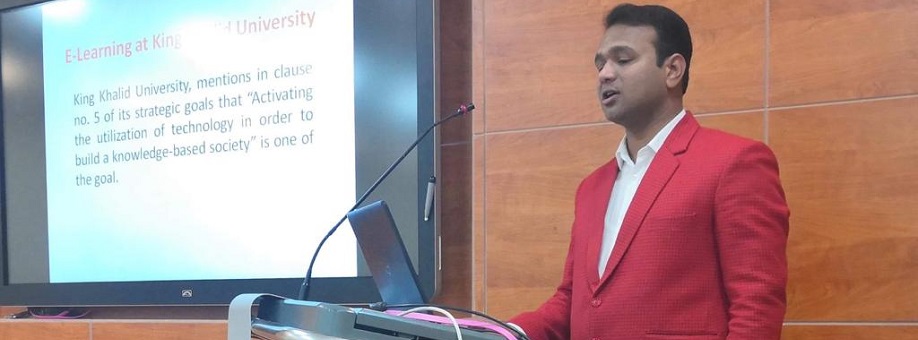FLT E-Learning Supervisor Delivers Several University-Wide Workshops
In October 2021, E-Learning Supervisor, Mohsin Raza Khan, delivered an e-learning practitioner certification course open to all faculty members. The importance of instructional design training and an enhanced learning environment for students is well known to all colleges of the university. "The two-week practitioner course is part of a university-wide strategy to provide the knowledge and skills needed to capitalize on one of the fastest-growing areas of education while creating captivating learning experiences for students. Around 60 faculty members participated, and we really focused on how to leverage some of the tools that can be used to increase social interaction, which is often missing in an online or remote environment," said Khan.
The primary objectives of the course were to improve student learning, engagement, interaction, and quality learning. These objectives were solidified by the core foundation of the program that participants would be able to:
Create content items to present a variety of learning activities to enhance student learning.
Deliver authentic assessments to evaluate student knowledge in a variety of meaningful ways.
Use Blackboard communication tools to promote interactions between the student and instructor, the student and course content, and the student and peers.
Effectively utilize Blackboard Collaborate™ tools to increase student engagement by providing a means to share and create knowledge.
Of noteworthy mention, in March 2021 and concurrently with the e-learning practitioner course in October 2021, Mr. Khan also delivered the Applying the QM Rubric workshop (APPQMR), which is offered by the Deanship of E-Learning in partnership with QM. "Dozens of workshop participants successfully completed 10 modules. They learned more about the QM rubric and annotations. We really focused on the importance of having measurable course and module objectives." Director of Instructional Design, Abdullah Zubain, said: "The APPQMR course is also a prerequisite for anyone looking to obtain the QM peer reviewer certification. I thank Mohsin, our women's campus QM coordinator, Safa Al-Shehri, and our training manager, Ali Alaosi."
The Bachelor of Arts in English program is expanding its educational resources to serve more members of the community and is committed to continuous improvement in all academic programs. E-learning is a vital component of both objectives and a vital tool for educational development at the university and other educational institutions throughout the Kingdom.
Date: 10/14/2021
Source: Faculty of Languages and Translation



